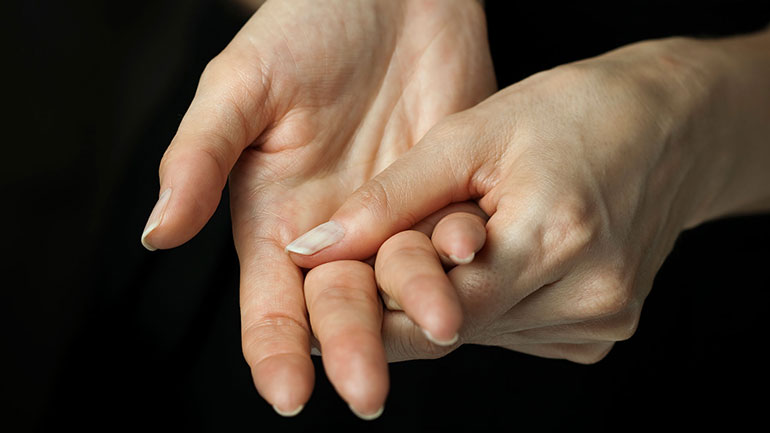Ready to quit smoking?
Smoking can create several negative effects on your health, such as an increased risk of developing serious diseases like cancer and heart disease. It can also lead to an earlier death.
While these risks are a good incentive to quit, quitting can be hard for some people because of withdrawal symptoms. These can include irritability, headaches, and intense nicotine cravings.
Even though quitting can be a challenge, the benefits on your physical and mental health are worth it.
Broken addiction cycle
Within one month of quitting, the many nicotine receptors in your brain will return to normal, breaking the cycle of addiction.
Better circulation
Your blood circulation improves within 2 to 12 weeks of stopping smoking. This makes physical activity a lot easier and lowers your risk of a heart attack.
Improved taste and smell
Smoking damages nerve endings in your nose and mouth, dulling your senses of taste and smell. Within just 48 hours of quitting, the nerve endings begin to grow, and your sense of taste and smell begin to improve.
More energy
Along with improved breathing and physical activity, the increased oxygen in your body will also give you more energy.
A boost to your immune system
Quitting smoking improves circulation, increases oxygen levels, and lowers inflammation — all of which give your immune system a boost, so it’s easier to fight off colds and other illnesses.
Cleaner teeth and mouth
Smoking yellows your teeth, causes bad breath, and increases your risk of oral infections. Within a week of quitting, you’ll begin to see and feel a difference in your mouth.
Improved sex life
Smoking can harm your sex life. It increases the risk of erectile dysfunction in men and contributes to female sexual dysfunction by reducing genital lubrication and orgasm frequency.
Lower risk of cancer
It may take a few years after quitting, but you’ll lower your risk of cancers, such as:
- lung cancer
- esophageal cancer
- kidney cancer
- bladder cancer
- pancreatic cancer
Side effects of quitting smoking
The side effects of quitting smoking can be extreme for some. Many people feel like they have the flu when they’re going through withdrawal. This is because smoking affects every system in your body. When you quit, your body needs to adjust to not having nicotine.
It’s important to remember that these side effects are only temporary.
Headaches and nausea
Smoking affects every system in your body. Headaches, nausea, and other physical symptoms are common as the nicotine leaves your body.
Tingling in hands and feet
As your circulation begins to improve, you may feel tingling in your hands and feet.
Coughing and sore throat
You may have a cough and a sore throat as your lungs begin to clear out the mucus and other debris smoking creates.
Increased appetite and associated weight gain
The boost in energy you experience when you quit smoking increases your appetite. Some people also eat more because they substitute cigarettes with food to cope with the “hand to mouth” habit of smoking. Both lead to weight gain.
Intense cravings for nicotine
Your body is dependent on nicotine while you’re a smoker. It will crave it when it goes without. Cravings peak between the two- and four-week mark.
Irritability, frustration, and anger
You’re making a big change — your mind and body need to adjust giving up something you’ve grown dependent on. This often causes irritability and anger.
Constipation
Nicotine affects the small bowel and colon. When you take the nicotine away, you may experience constipation as your body adjusts to going without it.
Anxiety, depression, and insomnia
Smokers have an increased risk of depression and anxiety, though the reason for this is unclear. You may smoke to feel better. When you quit smoking, you may feel more anxious and depressed. Insomnia is also also common.
Depression is a serious condition. It’s best to treat it with a medical professional, who may recommend talk therapy, medications, or light therapy. Some alternative remedies to use alongside doctor-prescribed treatment include:
- St. John’s wort
- omega-3 fatty acids
- acupuncture
- massage therapy
- meditation
Difficulty concentrating
All of the side effects of quitting smoking can make it difficult to concentrate at first.
Dry mouth
Smoking is a common cause of dry mouth. The stress and anxiety associated with withdrawal can make it worse as you adjust.
Quitting smoking timeline
- 20 minutes after quitting, your heart rate drops. Cigarettes raise your blood pressure and increase your heart rate. You heart rate will begin to drop to normal levels within 20 minutes of your last cigarette.
- 8 to 12 hours after quitting, you blood carbon monoxide level drops. Carbon monoxide is the same dangerous fume that comes from car exhaust. It causes your heart rate to increase and causes shortness of breath. Within 8 to 12 hours, the carbon monoxide level in your blood drops, and your blood oxygen increases.
- 48 hours after quitting, your ability to smell and taste improves. The nerve endings damaged by smoking begin to regrow, improving your sense of smell and taste.
- 2 weeks to 3 months after quitting, your risk of heart attack drops. Improved circulation, lower blood pressure and heart rate, and better oxygen levels and lung function all reduce your risk of a heart attack.
- 1 to 9 months after quitting, you’ll feel less short of breath and cough less. Coughing, shortness of breath, and sinus congestion will decrease. You’ll feel more energetic overall.
- 1 year after quitting, your risk of heart disease will be cut in half. Smoking significantly increases your risk of heart disease.
- 5 years after quitting, your risk of stroke decreases. Depending on how much and how long you smoked and your overall health, your risk of stroke will be the same as someone who’s never smoked within 5 to 15 years of quitting.
- 10 years after quitting, your risk of lung cancer drops to that of someone who’s never smoked. Your risk of dying from lung cancer will be that of a person who’s never smoked. Your risk of developing other cancers decreases significantly.
- 15 years after quitting, you risk of heart disease is the same as someone who’s never smoked. After you quit, you’ll have lower cholesterol, thinner blood (which reduces your risk of blood clots), and lower blood pressure.
Quitting cigarettes vs. quitting vaping
Vaping may seem like the lesser of two evils when it comes to smoking. Vaping may be less harmful than tobacco, but it still contains nicotine and other toxic chemicals, many of which are also found in regular cigarettes.
Even some vapes that claim to be nicotine-free have been found to contain nicotine. This can make quitting vaping just as difficult as quitting smoking for some people.
While some evidence suggests that vaping may help some people quit smoking, the U.S. Food and Drug Administration hasn’t approved e-cigarettes as an aid to quit smoking.
Find a doctor to help you quit
A doctor can help you quit smoking. Speak to your doctor if you’re ready to quit, or find a doctor to help you quit. A doctor can talk to you about medications that can help you quit or put you in touch with local resources.
You can also get help through the American Lung Association’s program, Freedom From Smoking, or call 1-800-QUIT-NOW (800-784-8669), which gives you access to their specially trained counselors in all states.




